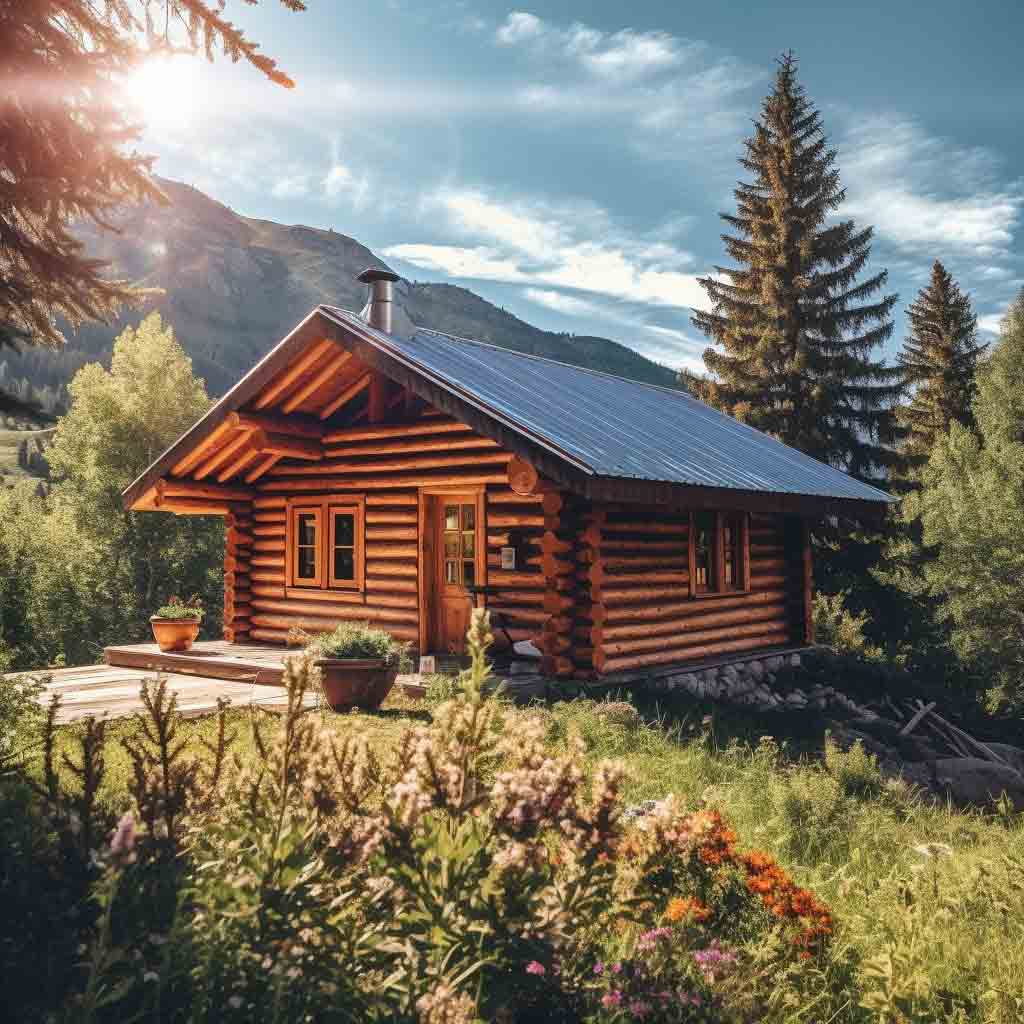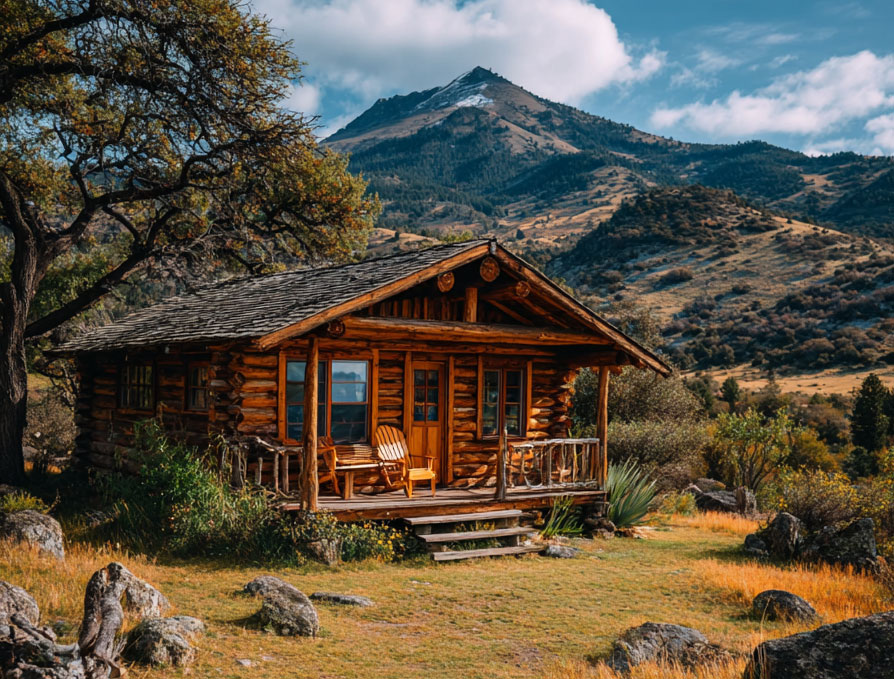How much money do I need to start living off grid?
The amount of money needed to start living off-grid can vary significantly depending on various factors, including location, desired level of self-sufficiency, available resources, and personal preferences. While it is possible to start with a minimal budget, having some financial resources can make the transition smoother.
Average Home & Land Prices In The USA
Off grid land prices have risen dramatically over the last decade and they will likely continue to rise as the demand for vacant land increases.
Price of Land per Acre by State: United States – (SOURCE: LandSearch.com)
- Avg price: $320,639
- Per acre $17,622
- Acreage: 4,654,041
- Avg size: 18 ac
Here are some key considerations to help estimate the initial costs:
Land Acquisition
The cost of purchasing land or securing a long-term lease can vary widely depending on the location, size, and quality of the land. It’s essential to research and compare prices in different areas to find an option that fits your budget. Additionally, consider factors like accessibility, proximity to necessary resources, and zoning regulations.
Shelter and Infrastructure
The cost of building or acquiring a shelter can also vary significantly. Options range from DIY structures using salvaged materials to purchasing prefabricated cabins or alternative housing solutions. The complexity and size of the dwelling, as well as the necessary infrastructure for water, energy, and waste management, will influence costs.
Energy Systems
Generating off-grid power typically requires an investment in renewable energy systems, such as solar panels or wind turbines. Costs can vary depending on the required capacity and the availability of incentives or subsidies in your area. Additionally, storage systems like batteries and inverters are necessary for storing and using the generated energy during times of low production.
Water Management
Establishing a reliable water supply off-grid may involve expenses like drilling a well, setting up rainwater harvesting systems, installing filtration and purification systems, or purchasing water storage tanks. The specific costs will depend on the water sources available in your area and the desired level of water security.
Food Production
Growing your own food can help reduce costs over time, but initial investments may be necessary. Expenses can include soil preparation, gardening tools, seeds, composting systems, fencing, and irrigation systems if needed. Consider the scale and methods of food production you intend to pursue.
Equipment and Tools
Assess the tools and equipment needed for various tasks, such as construction, farming, maintenance, and off-grid living. Prioritize essential tools and gradually invest in additional equipment as needed.
Miscellaneous Expenses
Keep in mind additional expenses, such as permits, legal fees, insurance, necessary permits, and initial provisions for food, water, and other essential supplies.
While it’s challenging to provide an exact figure, as costs can vary widely based on individual circumstances, a rough estimate for starting off-grid living can range from several thousand dollars to tens of thousands of dollars or more, depending on the factors mentioned above. Creating a detailed budget and researching specific costs in your chosen location will help provide a clearer estimate of the financial requirements. It’s also worth considering that living off the grid often involves ongoing expenses for maintenance, repairs, and ongoing self-sufficiency practices.
Here are some additional ideas on how to generate the money needed to transition to an off-grid lifestyle:
Savings and Budgeting
Start by examining your current expenses and identifying areas where you can cut back. Implementing frugal habits and creating a savings plan can help accumulate the funds needed for your off-grid transition over time.
Part-Time or Remote Work
Consider taking on part-time or remote work opportunities to generate income while preparing to go off-grid. Freelancing, consulting, or working remotely for an employer can provide a steady income stream while allowing flexibility to focus on your off-grid preparations.
Downsizing and Selling Possessions
Prior to transitioning to an off-grid lifestyle, evaluate your belongings and consider selling unnecessary possessions. Items like furniture, electronics, or vehicles that are not essential to your new way of life can be sold to generate additional funds.
Crowdfunding or Crowdsourcing
If you have a compelling story or vision for your off-grid journey, crowdfunding platforms can be used to raise funds from supportive individuals who resonate with your goals. Share your story, plans, and aspirations, and ask for contributions to help fund your transition.
Off-Grid Related Services
Leverage your skills and knowledge in off-grid living by offering services to others. This can include consultation, teaching workshops or classes, designing off-grid systems for others, or providing specialized services related to sustainable living.
Homesteading Products
Start generating income through products derived from your off-grid lifestyle. This can include selling excess produce, eggs, honey, homemade soaps, candles, or other value-added products from your sustainable practices.
Rent Out Space or Accommodations
If you have extra space or alternative housing options, consider renting them out to generate income. This could be short-term rentals, like Airbnb, or long-term agreements with tenants interested in an off-grid experience.
Off-Grid Experiences and Workshops
Share your knowledge and offer unique off-grid experiences or workshops to others interested in learning about sustainable living. This can include hosting retreats, organizing educational tours, or teaching hands-on skills related to off-grid living.
Online Content Creation
Create and monetize content related to your off-grid lifestyle. Start a blog, YouTube channel, or podcast where you share your experiences, knowledge, and tips. You can generate income through advertising, sponsorships, affiliate marketing, or offering exclusive content to paid subscribers.
Bartering and Trade
Embrace the concept of bartering and trade within your off-grid community or local networks. Exchange goods or services you can provide for the ones you need, fostering a mutually beneficial system without relying on monetary transactions.
Remember, generating the money to go off-grid may require a combination of approaches tailored to your skills, resources, and interests. It’s essential to be resourceful, adaptable, and willing to explore different income-generating opportunities. Start by assessing your strengths and aligning them with potential income streams, while keeping in mind the financial goals necessary to achieve your off-grid aspirations.





